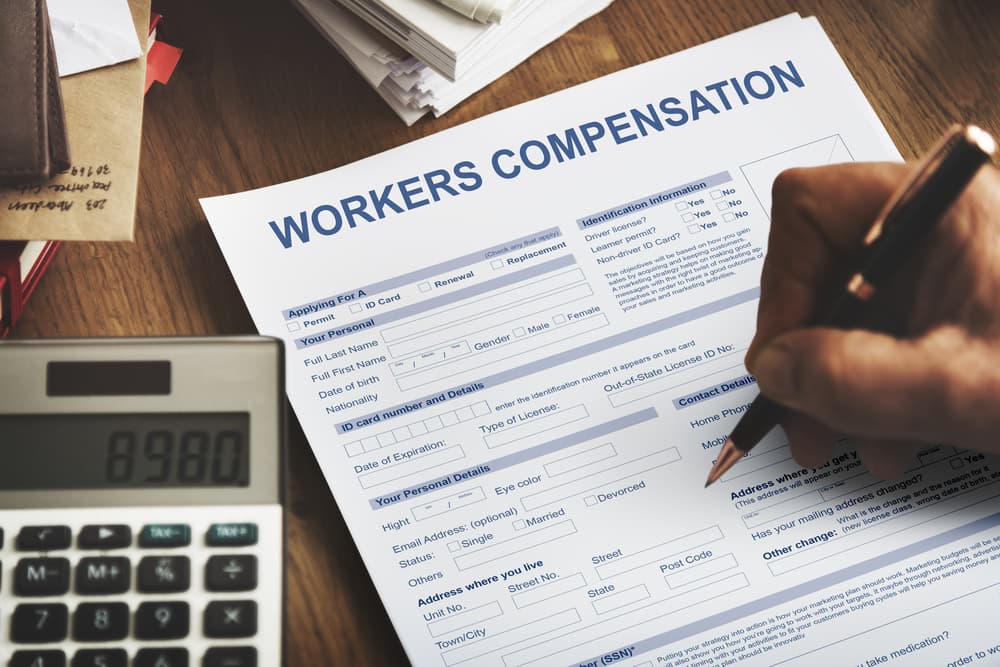Answers to Common Workers’ Compensation Questions

Suffering injuries on the job or getting sick because of workplace conditions can bring a flurry of uncertainty and stress. You may have the right to receive workers’ compensation benefits, but getting them can feel daunting and confusing.
Here are the answers to some common questions you may have about workers’ compensation claims. For more personalized advice, contact an experienced workers’ compensation lawyer today for a free consultation.
What Is Workers’ Compensation?
If you suffer injury or become sick in connection with your job, you may have wondered about workers’ compensation. But what exactly does it include?
Workers’ compensation (also known as workers’ comp) is insurance that employers carry for their employees.
It provides benefits to employees who suffer work-related injuries or illnesses, regardless of who was at fault. These benefits include medical treatment, disability payments, and, sometimes, a lump sum payout for permanent impairment.
Does Workers’ Compensation Cover Me?
The laws governing who workers’ compensation covers vary from state to state. But in general, most employers must purchase workers’ comp coverage for their employees. And that means most workers qualify for workers’ comp payments, regardless of how many hours they work or their job duties, age, or immigration status.
Workers’ compensation insurance may cover you and entitle you to benefits even if you are an undocumented immigrant.
Laws normally require your employer to post information about workers’ compensation coverage at your workplace. If you cannot find that information, you may request it from your state’s workers’ compensation agency, or hire an experienced workers’ comp attorney.
How Do I Know if Workers’ Comp Covers My Injury or Illness?
If you become hurt or sick in connection with doing your job, workers’ compensation likely covers your condition. It covers you for injuries you suffer from falls or other accidents at your workplace and motor vehicle accidents you have while doing your job.
It also covers you for illnesses you suffer because of environmental conditions at your workplace. It can even cover existing health conditions that your working conditions exacerbated.
I Got Hurt or Sick at Work. What Should I Do First?
Unless you need emergency medical attention, report the injury or illness to your employer immediately. Although state workers’ compensation laws vary widely, they all require workers to put their employers on notice about a potential claim.
Some require that you tell your employer, manager, or supervisor verbally. Others require written notice. It’s always important to inform your employer of your injury or illness as soon as you can.
Will Workers’ Compensation Pay for My Doctor?
Workers’ compensation covers reasonably necessary medical care for work-related injuries or illnesses. But depending on where you live, you may have limited choices for doctors other than emergency care.
In some states, you can only seek treatment from doctors that your employer or the workers’ compensation insurance company has approved. In others, you may choose any doctor on a list the state has pre-approved.
Your employer should post the rules on what doctor you can visit at your workplace, but if you have questions, contact your employer, your state workers’ comp agency, or an experienced lawyer.
How Do I Claim Benefits?
The process for claiming benefits depends on the rules in the state where you live. In some states, you must file paperwork with a government agency or your employer’s insurer. In others, your employer or doctor submits a claim form on your behalf.
Sometimes medical benefits kick in automatically when you seek medical care from an authorized provider, but you must separately seek disability benefits by completing the necessary paperwork. Additionally, state laws set varying time limits for filing a workers’ comp claim. If you miss them, you could lose your right to benefits.
Notices posted at your workplace should explain the process in your state for claiming benefits. You can also obtain that information from your state’s workers’ comp agency or ask a lawyer to explain your options.
Do I Need a Lawyer to Get Workers’ Comp Benefits?
Always hire a lawyer to obtain workers’ comp benefits. Lawyers who handle workers’ compensation cases have a deep understanding of the laws, regulations, and procedures that govern your rights.
A lawyer can prepare and submit a claim on your behalf, follow up with the workers’ compensation insurance company to make sure they process your claim fairly and on time, and advocate for your rights if your claim is unsuccessful. Having a lawyer handle your workers’ compensation claim can significantly increase your chances of receiving the maximum benefits.
Can I Get Money in Addition to Workers’ Comp?
Sometimes you can seek extra compensation for work-related injuries and illnesses in addition to any workers’ comp benefits you receive. You may have that option if your injury or illness resulted from the negligence or misconduct of someone other than your employer or a co-worker.
Through a separate lawsuit known as a third-party claim, you may recover payment for losses that workers’ comp doesn’t cover, such as your pain and suffering and diminished quality of life. An experienced attorney can review your circumstances to determine if pursuing a third-party claim is right for you.
How Much Does a Workers’ Comp Lawyer Cost?
You can afford to hire a lawyer to handle your workers’ comp claim. Most workers’ compensation lawyers offer a free consultation. They also represent clients on a contingency fee basis, which means their only fee is a percentage of any money they secure on your behalf. You pay nothing unless they win for you.
Contact a Skilled Workers’ Compensation Lawyer Today

Most workers have the right to medical and financial benefits after getting hurt or sick on the job. Hiring a skilled lawyer can substantially improve their chances of receiving the maximum benefits.
To learn about your rights after you suffer a work-related injury or illness, contact an experienced workers’ compensation lawyer today for a free consultation.

